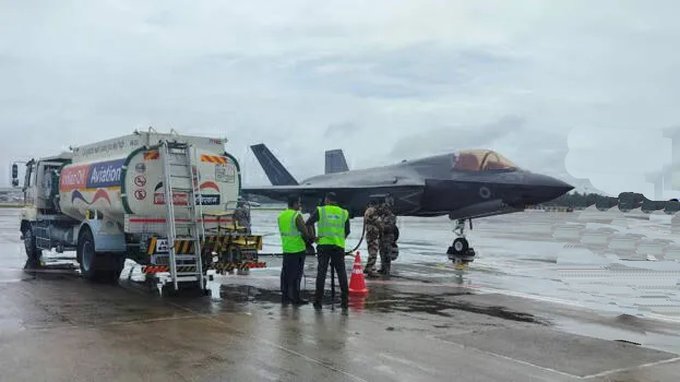SOURCE: AFI


C.W. Lemoine, an American author and former military aviator who flew F/A-18 Hornets with the US Navy, has shed light on a recent incident involving a Royal Air Force (RAF) F-35B pilot who refused to leave his aircraft after making an emergency landing in Thiruvananthapuram, India. According to Lemoine, the pilot’s decision to remain by the jet was in line with standard protocol to safeguard the highly sensitive technology of the fifth-generation fighter.
The incident, reported by Mathrubhumi newspaper, occurred when the RAF F-35B pilot, identified only as Captain Mike, made an emergency landing at Thiruvananthapuram International Airport. After completing customs formalities, the pilot declined to enter the terminal and instead stayed near his aircraft. This unusual behavior sparked speculation, with some suggesting it reflected a lack of trust in local authorities. However, Lemoine clarified that the pilot’s actions were a routine security measure.
“Staying with the jet is standard protocol in such situations,” Lemoine explained. “The F-35 is a fifth-generation stealth fighter packed with advanced technology. The pilot’s job is to ensure the aircraft isn’t probed, tampered with, or sabotaged in any way that could compromise its systems or leak sensitive information.” Lemoine, who also flew F-16s and T-38s during his 15-year career in the US Air Force and Navy Reserves, emphasized that this practice is common when advanced military aircraft land in foreign territories, particularly during unscheduled stops.
The F-35, operated jointly by the RAF and the Royal Navy’s Fleet Air Arm, is one of the world’s most advanced combat aircraft, featuring stealth capabilities, cutting-edge sensors, and networked warfare systems. Protecting its technology is a top priority for operators, especially in scenarios where the aircraft is exposed to unfamiliar environments. Lemoine noted that pilots are trained to prioritize the security of their aircraft, even in friendly nations, to prevent any unauthorized access that could reveal critical design or operational details.
The RAF pilot’s decision drew attention amid heightened regional tensions, but Lemoine dismissed suggestions of distrust, stating, “This isn’t about India specifically. It’s about protecting a strategic asset. The pilot was just doing his job.” The incident underscores the stringent protocols surrounding fifth-generation fighters and the lengths to which militaries go to safeguard their technological edge.
NOTE: AFI is a proud outsourced content creator partner of IDRW.ORG. All content created by AFI is the sole property of AFI and is protected by copyright. AFI takes copyright infringement seriously and will pursue all legal options available to protect its content.